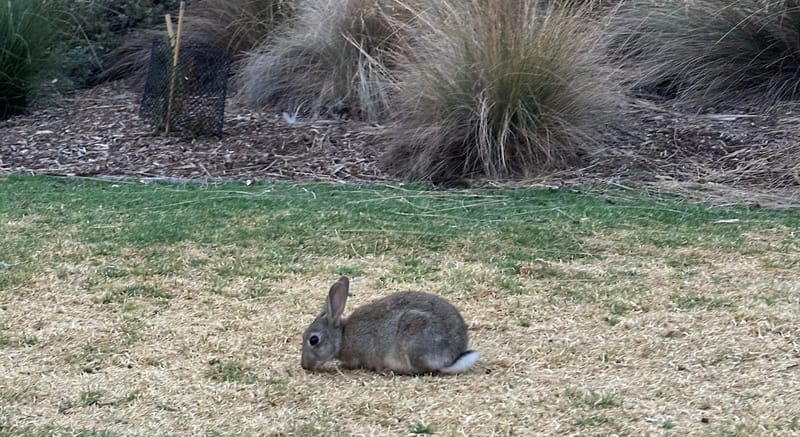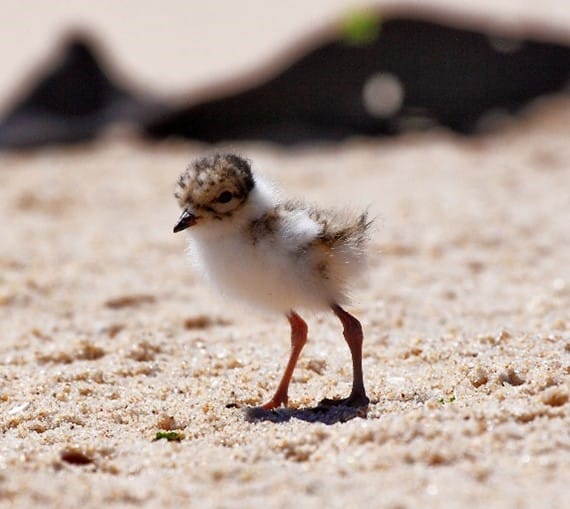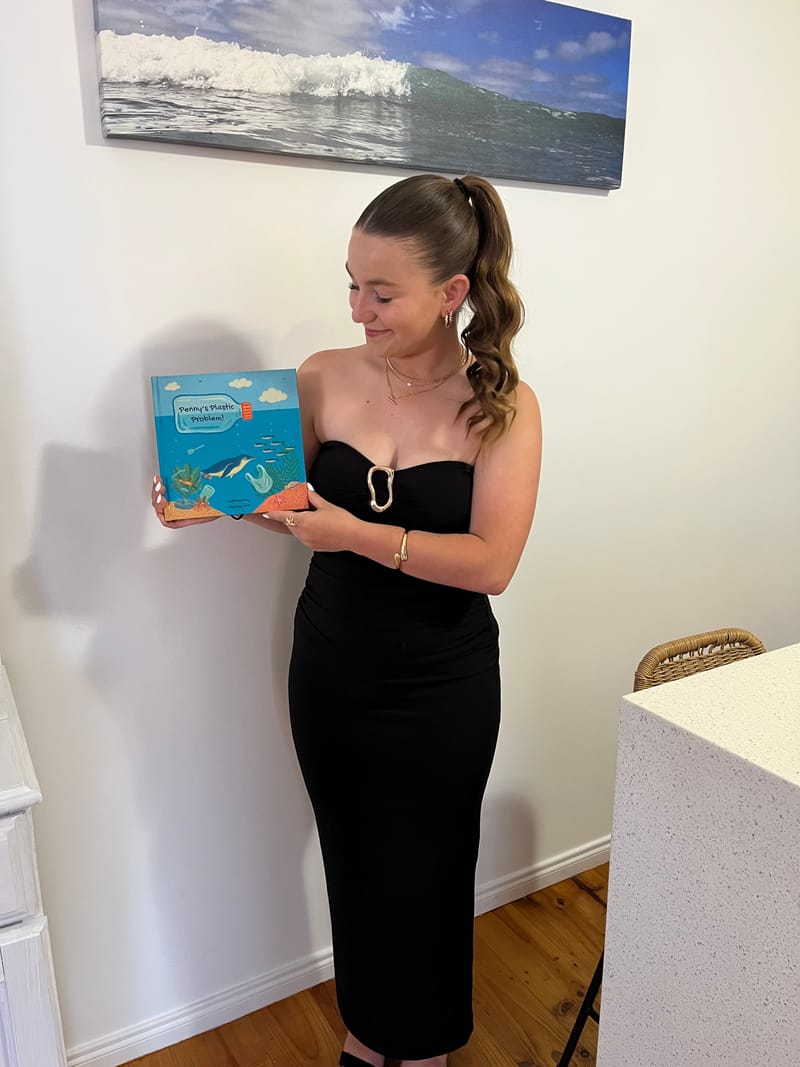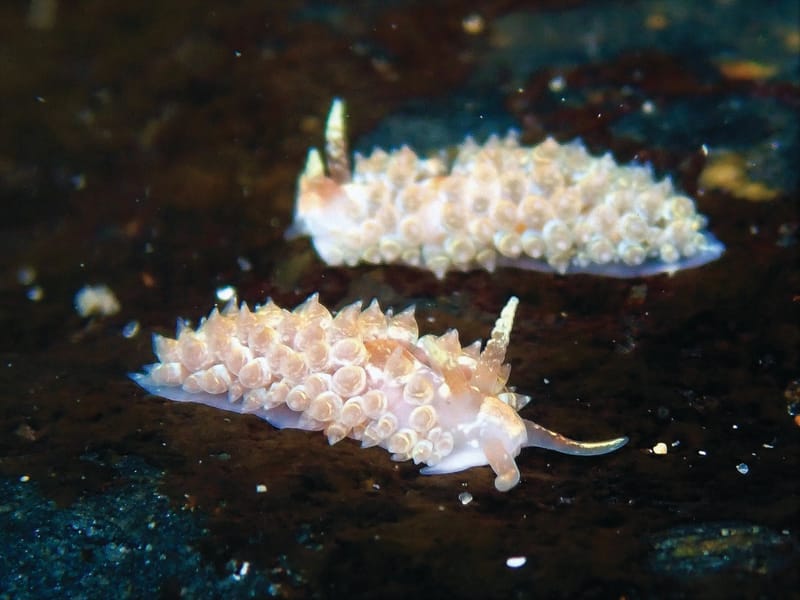Plant power – pilot project
A floating wetland system filled with 1800 native plants has been installed at Westernport Water’s wastewater lagoon.
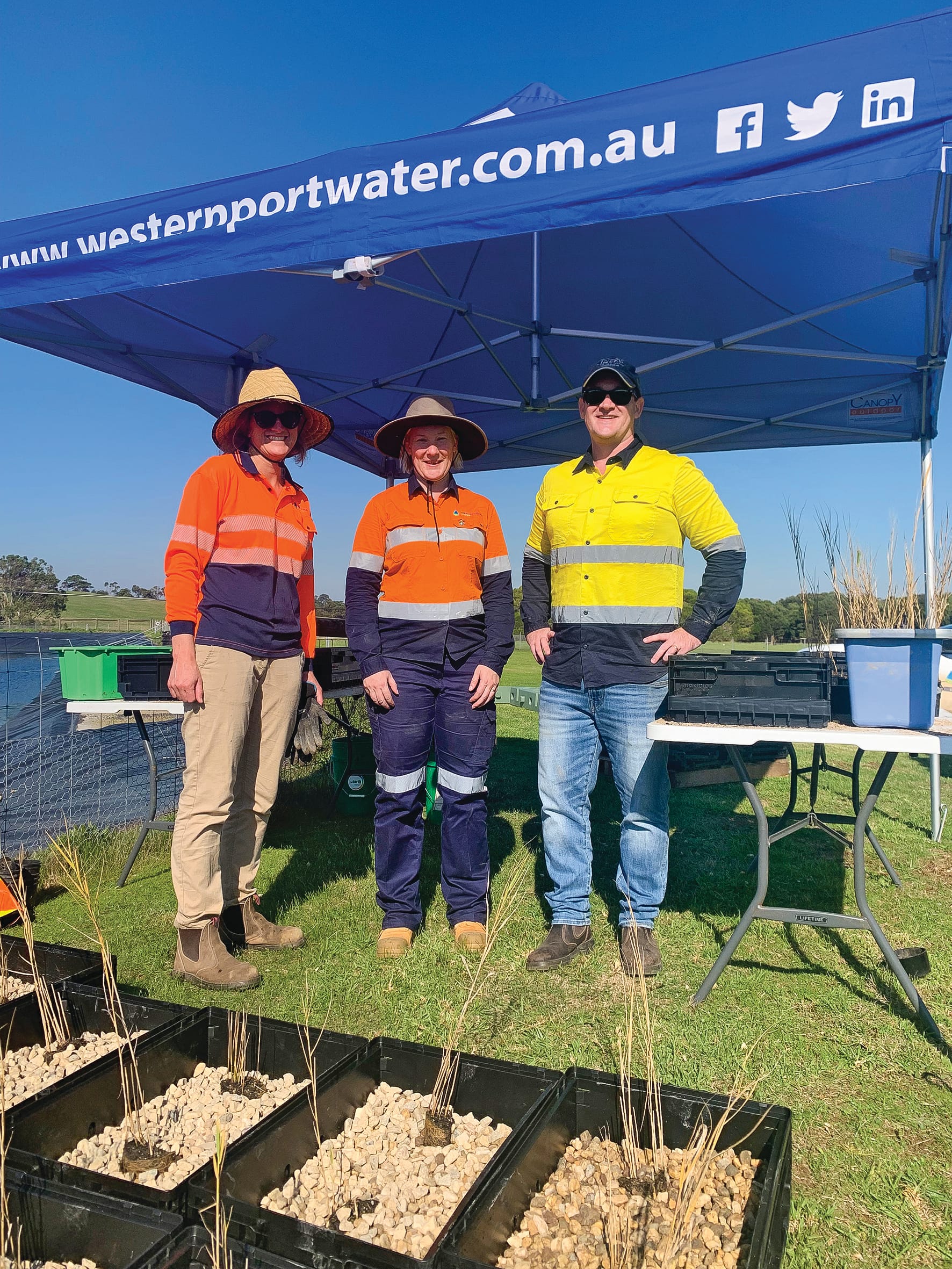
A floating wetland system filled with 1800 native plants has been installed at Westernport Water’s wastewater lagoon as part of a ground-breaking environmental study.
The study is exploring the role of floating wetlands in wastewater treatment.
Together with scientists from Deakin University and CSIRO, Westernport Water will monitor the plants as part of this innovative pilot project over the next 18-months to determine how effective they are at absorbing nutrients, which is also expected to reduce emissions, and will inform future longer-term planning.
Westernport Water’s Climate Change Advisor, Meg Humphrys explained the Floating Wetlands pilot project aims to address a common challenge for the water industry in managing the nutrient concentration in treated effluent and emissions produced from wastewater treatment.
Meg said it’s the first study of its kind in the Victorian Water industry to measure the performance of wetland plant species on the quality of treated effluent, greenhouse gas emissions, and the remediation and removal of contaminants, providing evidence to support and encourage more nature-based solutions in the water sector.
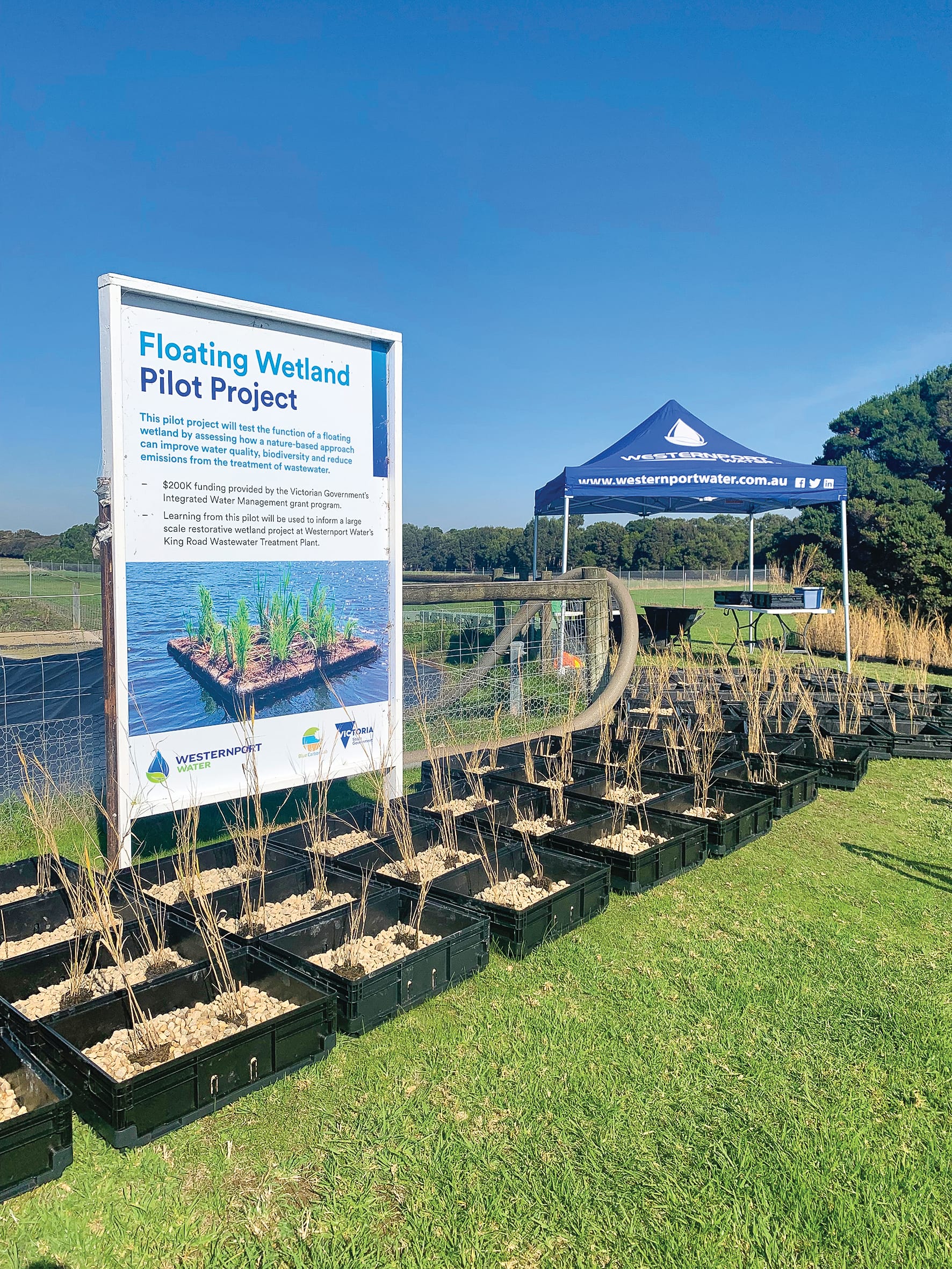
“Getting the plants in was an exciting milestone for the research team. Wetland species are incredible – in a few months it will have transformed into a wetland full of lush, green foliage that provide habitat for birds and wildlife while acting as a natural filtration system,” said Meg.
Results of the research project will be used to inform the detailed design and construction of a permanent, large-scale restorative wetland system at King Road Wastewater Treatment Plant, with construction scheduled for 2025.
Over the next five years, Westernport Water has said it will invest $20 million in projects that reduce environmental impacts and provide positive outcomes for the environment and community.
“The process to treat wastewater takes a lot of energy. Developing nature-based solutions like this floating wetlands system is critical to our efforts to mitigate and adapt to climate change.
“We look forward to seeing the results of this pilot study and sharing the findings with our customers, community and the broader water sector,” said Meg.



